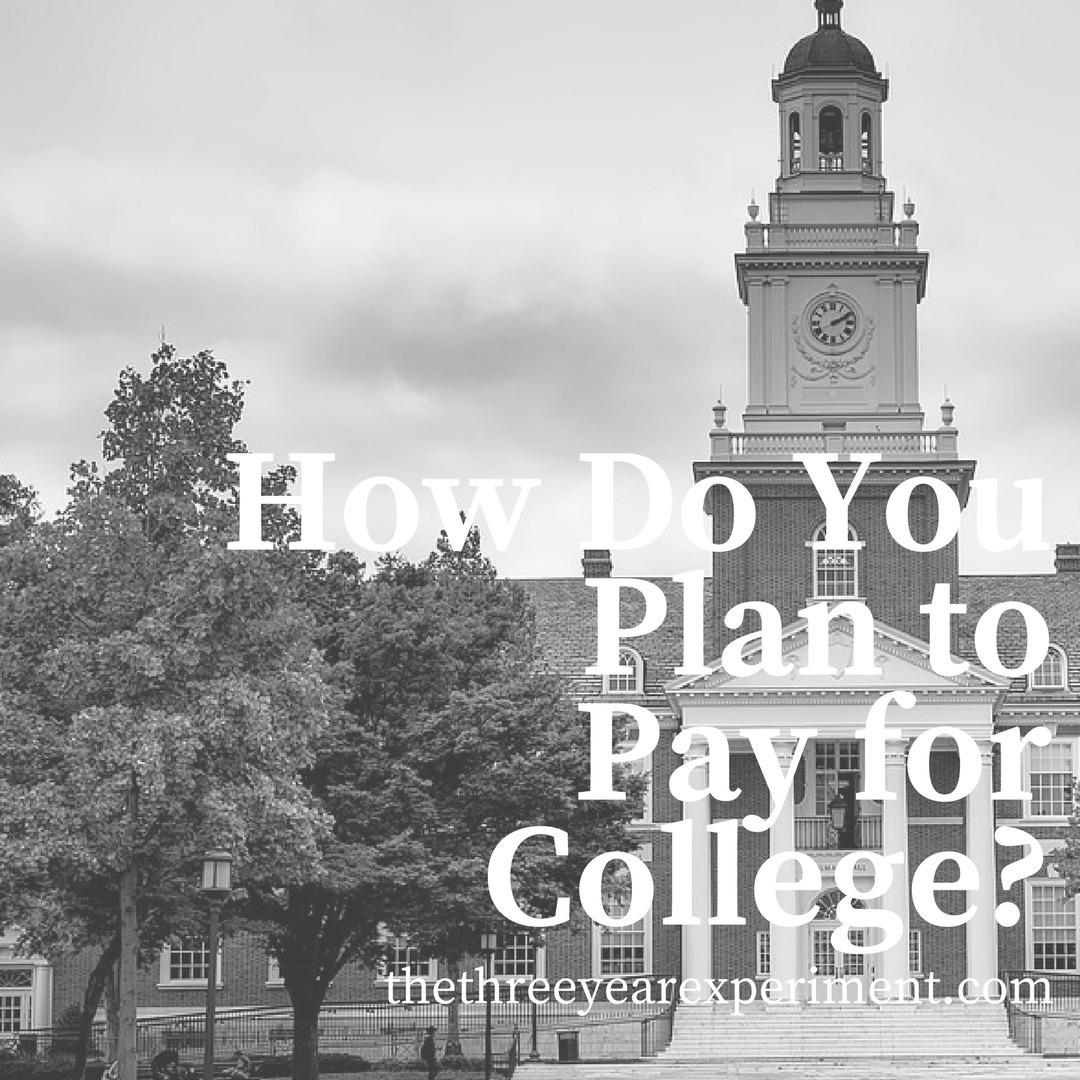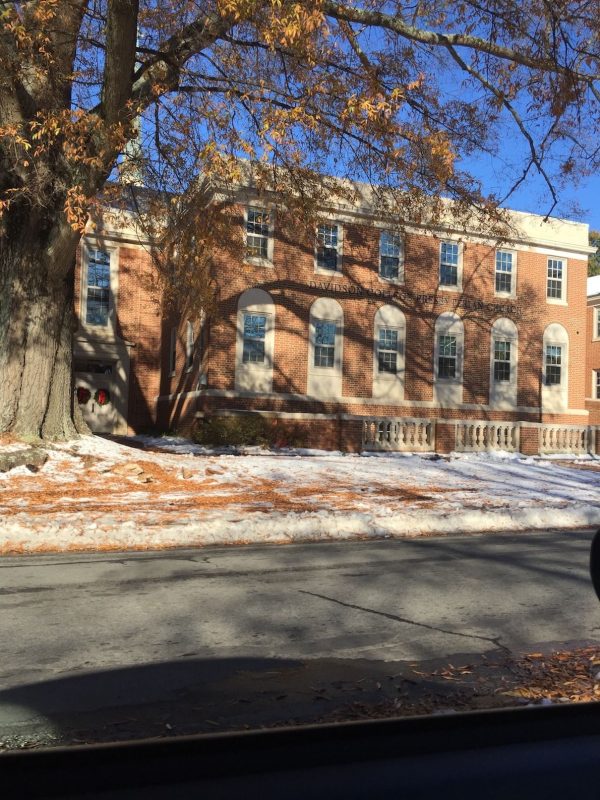If you have kids, no matter their ages, chances are you’ve thought about college expenses.
Unless you live outside of the US.
Why is college (or university) so expensive in this country? We’re all pretty familiar with the statistics at this point. College tuition costs in the US have increased by 498 percent between 1985 and 2011, which is at four times the rate of inflation.
And there’s little chance that costs will decrease any time soon, since there are so many government subsidies and low-interest loans thrown in to cushion the shock of those high costs.
In spite of such subsidies, 68% of undergraduates are leaving school with debt, and that average debt burden is $30,100 per student. That’s to say nothing of debt from masters’ and doctoral programs.

When parents are looking at in-state tuition costs of $20,770 per year with room and board, it’s no wonder that so many college graduates have so much debt. That’s 35% of the gross median household income in this country of $59,039 (and more than that after you pay taxes).
How are you planning to pay for college for your kids? With costs running around $25,000 per year per child on the in-state tuition side and upwards of $60,000 per year on the private side, college is prohibitively expensive for most Americans.

However, no one got the memo.
We are pushing higher education on a generation that is graduating (or even worse, not graduating) with their arms cut off. They’re starting their adult lives poorer than when they entered this world, dragging around a mountain of debt. As I talked about a bit here, a generation of people with a huge debt load means that more and more of the economy’s resources go to servicing that debt, not into starting businesses or buying franchises or enjoying new restaurants.
Oh, and by the way, only 4 in 10 of us has a college degree anyway.
That’s right–39.2% of people, much less than half, have a college degree. We somehow think or buy into the lie that we should all go to college. And so masses of recently-graduated seniors head to four-year colleges in the fall, often to the best school that accepted them, regardless of cost. They often have a host of grants, loans, and other cobbled-together aid.
And 45% of them drop out.
But they’re still on the hook for the debt. They have the oh-so-painful reminder that not only did college not work for them, but they’re still paying back that failed experiment, often for years.
So as responsible parents, what do we do? If you graduated school with debt, no doubt you spent your first working years paying off those loans. Hopefully you knocked them out quickly so you could then play catch-up with retirement accounts and house down payments. When kids come along, you mean to start saving, but it feels overwhelming. Maybe you save some, and you feel like you’re making progress, but then you see the cold, hard costs staring you in the face and you realize there’s no way you’ll be able to pay it all for your kids.
And they’ll graduate with debt, too.
My college roommate told me a few years ago that her debt has followed her. We went to a private, four-year university that she got 0% scholarship for. Her family couldn’t afford to send her to that school, but she wanted it so badly, so she took out private loans. She then went on to law school but decided it wasn’t for her, so she added a year of law school debt on top of everything else. She’ll finish paying off her loans when her oldest goes to college.
When we’re 18, we don’t necessarily have the wherewithal to make financial decisions that will affect us for decades. We need parents to help us see reason, to paint the picture that some debt is just not worth it.
Or, to teach us that if we do graduate with debt, we need to pay it off like it’s setting our house on fire. Because it kind of is.
The Great Big Lie of the Best School
While it is true that certain schools open doors for you career-wise, the advantage someone might have graduating from a private school can be overcome with hard work and a little strategic planning.
Let’s say you live in North Carolina. Your precious progeny has been accepted into Duke University. You do your research and realize that total costs for four years at Duke are $290,840 ($72,710 per year with tuition, room & board, books). For this example, we’re assuming that whatever aid you get will keep prices proportional. She was also accepted at UNC-Chapel Hill, where the total four year cost will be $101,628 ($25,407 per year). That’s $47,303 more per year to go to fancy Duke U. But wait! You’ve done your research, and you know that the average early salary for a Duke grad is an impressive $65,300, while she can expect to earn an average of $134,400 per year at mid-career. UNC graduates only earn $51,200 early on, and $96,000 average mid-career. Your child could expect to earn $38,400 more per year mid-career and wipe out the difference in cost in just five years.

But… what if your child was able to graduate from UNC debt-free? What if she could start contributing to her 401K her first year out of college? And those contributions could start to grow, tax free? How many more risks and opportunities could she go for if she weren’t saddled with a debt payment each month? She could move abroad, take a different type of job, start a company. While the average graduate may earn more from Duke, if she has to take on massively more debt to do so, then UNC may be the better option.
The Private Conundrum
What about, though, if your child was accepted to a mid-level private college? Is the extra cost worth it? Let’s assume that instead of Duke, your daughter gets into North Carolina’s Wake Forest (her SATs weren’t quite good enough for the other). Unfortunately, the total price of WakeForest is just under what it costs to go to Duke–$71,682 per year, or $286,728 in total. How do WF graduates compare earnings wise? A lot lower. They earn an average early salary of $56,000, and an average mid-career salary of $118,400.
Families are betting that spending heaps of money on expensive private universities will pay off, but will they? It’s important to look on a case-by-case basis at each school. If the total price you’ll pay at Wake ends up being equal to or less than an in-state school, well, obviously, the choice is clear. But if not, many families are betting on the pedigree of a lower-tier private school to be worth the extra money they’re paying, and it’s important to do a careful financial analysis before taking on the extra debt.
If your child has the choice between a state school where she receives a good bit of aid and a private school where she’ll take on tens of thousands of dollars more in expensive private loans, it’s important to make a really thoughtful cost/benefit analysis before signing on at the private school. Yes, private schools tend to be prettier, and have nicer amenities (that’s to pull you in), but do they provide better education? Do they offer better job training skills, internship opportunities, and job placement fairs?
Some do, honestly. With smaller class sizes and more accessible professors, they can boast higher acceptance rates to graduate programs, law schools, and medical schools. But if your child is getting a degree in education, or won’t otherwise benefit, then think hard about how much debt your family is taking on.
What Can You Afford?
The Federal Government has families fill out Pell Grant information in order to see how much aid they qualify for. Our government is very optimistic about the disposable income of families. If you have equity in your home, for example, you can take out a mortgage to pay for college, according to their formula. Same with retirement savings.
Unfortunately, this is short-sighted reasoning. Your child’s future earnings can’t help you pay back a second mortgage or catch up for retirement, unless you’re planning on having them finance your retirement. So when it’s time to send your kids to college, it’s important to be realistic.

How much have you saved? You need to sit down with your high schooler and talk about what money is available for his college education before he starts looking at schools. Chief Mom Officer has created a College Compact with her kids. In it, she recommends detailing exactly what you’re willing (and able!) to pay for when it comes to picking a college: it might be four years’ room and board at an in-state school, 50% of your alma mater’s cost, etc.
The time to have a conversation with your kid is not in April of his senior year when he’s got to choose which school to attend. It’s at the beginning of high school. College costs can be daunting, but ignoring those costs won’t make college money materialize out of thin air. Knowing how much is available to him may help your child make a better financial decision.
Paying Less Than Four Years
There are also other programs available that bring the total cost of college down. Your child could complete one or two years of community college and then transfer in to a more exclusive school. Many states have programs that allow your senior to take college courses and receive college credit. By the time he’s graduated high school, he could have up to two years of college completed. If your child takes an AP course and passes (with a 3 or 4, depending on the college) she’ll often receive college credit.
Your child could also start out at a state school and transfer to a private college in her junior or senior year. While her transcript will show the two colleges, the degree will come from the latter school.
You could also take courses from your school online, if they’re offered, at a lower cost than taking them on campus.
I believe that it’s high time we stop assuming that it’s normal for students to graduate college with debt. We need to rethink the best school idea, be realistic about what we can afford, and explore alternate options to paying a 4-year (or longer) college.
The next generation will be better off for our honest conversations about college affordability today.
What do you think? Do college costs scare you?



Amen, girl! This is one interesting conundrum out there. We’re getting to the point where you now need to consider if the costs are worth it for college. How long will it take to recoup your costs?
I’m thinking that the current model is not sustainable. I still have about 12 years before my daughter would start college and my thinking is that there will be some type of transition that takes place in the meantime – maybe more online schools or something along those lines. It’ll be interesting to see what takes place.
— Jim
I agree! I don’t think it’s sustainable to start off life with five or six figures of debt. It just feels hopeless. I think it’s one of the reasons Millennials and now iGen are starting to pay more attention to money, because they’re really struggling with all that debt.
We have friends whose junior is taking college courses as part of her high school. When she graduates she’ll have credit for two years of school. I think this, or colleges offering more aid, is one direction people are going. There are also a lot of online programs that are cheaper, and tons of MOOCS that are totally free (but no credit). I agree–it will be interesting to see what happens in the next decade or two. Meanwhile, we’re thinking about the states with the best and lowest tuition for our boys!!
All three of my kids had completely free rides because they had good study habits and learned to take tests well. They were smarter than the average kid but nobody was a genius or a prodigy. And I was a high income parent so they were not eligible for any needs tested scholarships. What we found, and I think it is still true, is that many state universities are desperate to retain high quality local students that want to major in STEM fields and will pretty much give a free education to them, including room and board, to keep them in state because it raises the academic rating of the university. We had all three of our kids apply for scholarships in engineering (even though only two intended to follow through in engineering) and all three got them. No loans required and no funds from lucky parents. All three graduated with their engineering or business degrees and none of them has had any issue with the fact that they didn’t go to Harvard or MIT. They have good jobs and do not live in my basement!
Wow. That is a very cool story. We have talked up STEM fields with my boys, too. I wish I could be a fly on the wall at your house when those kids were growing up! Sounds like you guys did some things right. 🙂
We had this same discussion (almost verbatim since I’m an NC native) comparing a state school with a prestigious private school. We asked the financial administrative assistant how they could justify 3x the costs? I appreciate the fact that the prestigious school will open more doors quicker, but it will not ultimately be the determining factor of your progeny’s success.
I like your advice. Do NOT wait until the senior year while you’re touring colleges to have the conversation with your child about what you can or choose to afford.
Second piece of advice… be sure you and your partner (if that’s the case) are on the same page about what you plan on providing or not for your child’s college. With only one child, we recognize, as does he, that we were able to help significantly with expenses to give our son a debt-free experience. (Thank you stock market and frugal living).
That’s a great question to ask–what did she say? Yes, I agree with you that prestigious schools can open doors quicker, and I’ve definitely seen the benefits connections have had on my classmates. But I’ve seen a lot of people who go to a state school, do well, then go on to a more prestigious school for their JD, MD, Master’s, etc. One of my colleagues went to a state school in Mass then eventually did her Master’s at Harvard (for free). She and I work at the same school, with the same pay scale. It is a good school though! 🙂
I totally agree with you about being on the same page with your partner. Mr. ThreeYear and I have slightly different feelings about what we’re willing to pay for, so we’re saving (and willing to provide) more than I would solo because it’s more important to him than me if JuniorThreeYear gets into a certain school.
Another great thing has been that our 6th grade does a College Fair project, where they create a presentation about which college they’d like to go to. They include cost in the analysis, and then parents come and hear them present. It’s a great eye-opener for parents about the cost of college when their child is in 6th grade. I think more schools should implement similar programs to help families understand costs.
You can imagine the answers an admissions officer has to give when confronted with parents who are on the verge of disappointing their precious. It wasn’t pretty.
I’m fortunate to work for a company that provides seminars related to the college selection process. How to parent, essay writing, choosing, how the colleges choose, etc. Very valuable information.
In hindsight, what you said previously about having a conversation with your student EARLY in the process and involve them with the expenses part as much as the cool extracurriculars!
Good luck!
Wow–that is extremely valuable. Our 10-year-old has an uncommon interest in finances (wonder where that comes from?) so I think we’ll end up talking to him about specifics early on. In my case, I think my parents giving me more hard numbers would have been a lot easier so that I could have owned the financial side of the process a bit more. Thank you, Kevin!
A schoolmate of mine went to Wake Forest and I knew it was private but I didn’t know until now it’s that expensive! Perhaps her parents spoil her or something but she’s currently working at A&F as a store manager in training. If I shelled out $70k a year as a parent, I would want a higher rate of return than the exact same job she had before she left for college!
Ha! I saw that a lot at the school I went to. Maybe your friend got scholarships. At my school, they didn’t hand out a lot of scholarships, so I saw people paying full sticker price and then graduating with education majors. Again, no problem if you could afford it, and many could. But if you were taking out loans only to graduate and work in retail at the mall, ouch. I think we’re not strategic enough as parents/students about how we’re going to make our education investment pay off. It’s not a magic panacea that’s going to turn you into a millionaire, as you well know. That has much more to do about work ethic, getting good internships, etc.
I work at a small private university. I’m curious about what you wrote about private universities not having as much financial aid available as public schools. What is the source of this information? Do you have data to back this up? Students at private universities still qualify for state and federal aid. At my university, 85% of students are on financial aid. Is that unusual? We have a lot of students on Cal Grants.
One piece that’s missing from you analysis is the graduation rates. I would look at 4 and 5 year graduation rates when evaluating programs. For example, I’m in a STEM fields and the 4 year graduation rate, for my discipline, at my local state school is 1%. Pretty bad, right? Also, community college isn’t always the best route. I see a lot of students spend a lot of time (with little to show for it) at the community colleges. I see students who spend years at the CC, taking two classes a term. And then, many times the classes don’t transfer over (often because they are low level classes). And while I agree that getting college credit as a high school student and getting AP credit is really appealing, teenagers these days have a lot of pressure placed on them and this definitely increases the expectations that parents impose on their kids. Parents put a lot of pressure on their kids. One of my colleagues pays his kids if they pass their AP tests. Also, the AP passage rates are pretty low. You can Google the pass rates. My university requires a score of 4 or 5 in order for a student to get credit. For many of the subjects, only a third of students taking the test score that high. Not all students who take AP classes elect to take the tests.
You are right about the availability of cheap online education. These programs aren’t emerging, they are already in existence. If you go this route, you won’t have to pay for housing because the kids can live at home. Why not go that route with your boys? You’ll save a lot of money.
Thanks for your dissenting voice, Profesora! 🙂 And you’re right–that sentence about private universities not giving as much aid was based on one article and was a generalization. I have changed it to be more accurate. In my case, I went to a small private university where I received a 75% scholarship and was fortunate my parents paid the rest. I chose the school because it was a cheaper option; my first choice was Duke where I received no aid (hence the Duke analogy!!). While I was sad at the time, in hindsight, graduating with no debt was a huge blessing for my future. Many of my friends, however, came to the school I chose, Furman, with zero scholarships. They fell in love with the school and graduated with six figures of debt that many are still paying off.
I definitely agree with you about graduation rates, and I mentioned the advantage private schools can have, especially in the STEM fields (my college’s med school acceptance rate was 93%).
My boys will definitely be picking the college option that we can afford, and not taking on debt. They’re lucky we’ve been saving for many years! 🙂 I would also love them to get scholarships but we’re not counting on it. I have used online options to get my masters and I was very impressed with the quality of education I got. Thanks for reading and for your thoughtful pushback.